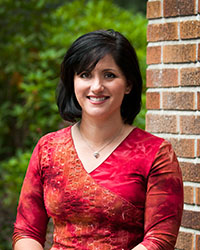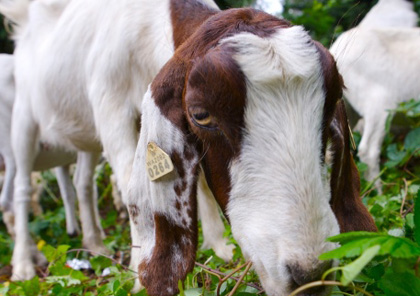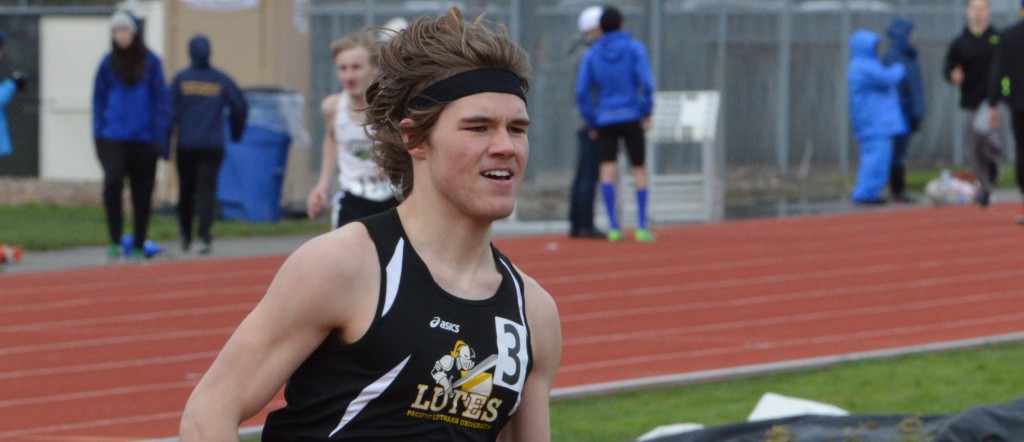Page 5 • (3,660 results in 0.049 seconds)
-

On the day of high school class choices, a middle school teacher noticed the normally outgoing Jackson Reisner sitting quietly, acting withdrawn. Jackson grew increasingly anxious as the morning progressed. A movie buff, the Burlington eighth grader had seen all the difficult depictions of high…
On the Court and in the Classroom: A Brother and Sister Find Success at PLU Posted by: shortea / March 23, 2023 March 23, 2023 By Lora ShinnPLU Marketing & Communications Guest Writer On the day of high school class choices, a middle school teacher noticed the normally outgoing Jackson Reisner sitting quietly, acting withdrawn. Jackson grew increasingly anxious as the morning progressed. A movie buff, the Burlington eighth grader had seen all the difficult depictions of high school. Teens
-

On the day of high school class choices, a middle school teacher noticed the normally outgoing Jackson Reisner sitting quietly, acting withdrawn. Jackson grew increasingly anxious as the morning progressed. A movie buff, the Burlington eighth grader had seen all the difficult depictions of high…
On the Court and in the Classroom: A Brother and Sister Find Success at PLU Posted by: Silong Chhun / February 24, 2023 Image: Siblings Sydney (left) and Jackson Reisner (right) (PLU photo/Sy Bean) February 24, 2023 By Lora ShinnPLU Marketing & Communications Guest WriterOn the day of high school class choices, a middle school teacher noticed the normally outgoing Jackson Reisner sitting quietly, acting withdrawn.Jackson grew increasingly anxious as the morning progressed. A movie buff, the
-

Life of the Mind: Democracy & the American Dream – for DREAMers https://www.youtube.com/watch?v=47Pk401CS6M About the DREAM Act – and DREAMers Named after the Development, Relief and Education for Alien Minors Act, a measure first proposed in 2001, DREAMers are undocumented immigrant high-school graduates who are…
their families. –Maria Chávez By Maria Chávez PLU Associate Professor of Political Science When she was 11, “Ana Sofia” came to the United States on a tourist visa with her parents and sister. Now 18 and a high-school senior in Seattle, she learned of her status as an undocumented immigrant only two years ago—and has found the new knowledge unsettling. “It’s just the feeling of feeling unwanted,” she said. “Even though you have not done anything bad—because I don’t feel I’ve ever done anything bad
-
The ethics of torture Is it ever OK to torture someone?What if they have information that might prevent another 9-11? Or prevent a death of someone you know? And what exactly is torture?These prickly questions will be addressed at a forum sponsored by the Philosophy…
gathering. “He’s going to be asking, in intelligence gathering, are there circumstances where it’s okay to use torture?” Kaurin said. Kaurin will be looking at the rules soldiers follow when deciding whether to torture, or not. And yes, there are rules on this, she said. “I will be looking at it logistically, from a soldier’s perspective,” she said. “Is there a way to torture ethically, consistent with the rules of war?” The Geneva Convention expressly forbids the use of torture, she said. But the Bush
-
In March 2020 PLU shifted to online learning in response to the COVID-19 pandemic. “How will classes work? Will there still be group projects? Will Capstone presentations still happen? How long will it be like this?” These are just some of the questions students and…
literature and history, says “I basically do all my research on the internet, the PLU library database list is my best friend right now.” Regardless of whether students currently reside on or off campus, they find a use for Mortvedt Library’s resources. But as useful as the library is, in the Humanities there’s also great merit to be found in the input of one’s peers. James notes that “interacting with other students is super useful.” Discussion and collaboration might seem harder to partake in during
-

Food Symposium addresses the many ways food impacts the world. The ethics of food By Katie Scaff ’13 The PLU Philosophy Department’s Food Symposium Feb. 21 will address the ethics revolving around food. Keynote speaker, Paul B. Thompson – the W.K. Kellogg Chair in Agricultural,…
February 21, 2012 Food Symposium addresses the many ways food impacts the world. The ethics of food By Katie Scaff ’13 The PLU Philosophy Department’s Food Symposium Feb. 21 will address the ethics revolving around food. Keynote speaker, Paul B. Thompson – the W.K. Kellogg Chair in Agricultural, Food and Community Ethics will speak at 7 p.m., Feb. 21 in the UC Regency Room. Thompson, who has published several works on the environmental and social significance of agriculture, will discuss three
-

UPDATE: PLU will host a celebration of life for Tom Pfeifle on Sept. 22 in Lagerquist Concert Hall at 6 p.m. The ceremony is one of many ways the campus community is honoring Pfeifle, who was an active member of Outdoor Recreation, as well as the cross…
The Passing of Thomas Pfeifle Posted by: Thomas Krise / August 30, 2016 Image: Tom Pfeifle running on the PLU Track and Field team. (Photo courtesy of PLU Athletics) August 30, 2016 UPDATE: PLU will host a celebration of life for Tom Pfeifle on Sept. 22 in Lagerquist Concert Hall at 6 p.m. The ceremony is one of many ways the campus community is honoring Pfeifle, who was an active member of Outdoor Recreation, as well as the cross country and track and field teams. A memory wall is on display
-

Theatre major Zivia Rich ’24 loves a good story. She is especially fond of them in the form of a radio show or podcast. Growing up, the Seattle-area native spent much of her time listening to KUOW, their local National Public Radio station. “We have…
PLU students present ‘The War of the Worlds’ Posted by: Silong Chhun / November 1, 2022 Image: PLU students Zivia Rich ’24 (left) and Fulton Bryant-Anderson ’23 (right) are recording the independent production ‘War of the World’, which will premiere on Sunday, Nov. 27, on LASR. (PLU/Photo Sy Bean) November 1, 2022 By Veronica CrakerPLU Marketing & CommunicationsTheatre major Zivia Rich ’24 loves a good story. She is especially fond of them in the form of a radio show or podcast. Growing up, the
-

Theatre major Zivia Rich ’24 loves a good story. She is especially fond of them in the form of a radio show or podcast. Growing up, the Seattle-area native spent much of her time listening to KUOW, their local National Public Radio station. “We have…
PLU students present ‘The War of the Worlds’ Posted by: vcraker / November 2, 2022 November 2, 2022 Theatre major Zivia Rich ’24 loves a good story. She is especially fond of them in the form of a radio show or podcast. Growing up, the Seattle-area native spent much of her time listening to KUOW, their local National Public Radio station. “We have a radio in my kitchen, right above where we cook, so pretty much I’d wake up, come into the kitchen and KUOW would be on every single day,” Rich said
-

“Capturing astronomy images is rewarding but can be challenging,” said professor of physics Katrina Hay. “It requires long exposures or stacked images, focusing in cold dark conditions, climbing a ladder to access the telescope, tracking objects as they move across the sky, and merging several…
. Ordaz captured images of globular clusters, constructing diagrams based on temperature and luminosity to estimate the age of these ancient clusters.Mentorship:O'Neill looks on while interns discuss celestial image processing. Kop is making light curves, showing how the brightness of several variable stars changes over time. Ordaz captured images of globular clusters, constructing diagrams based on temperature and luminosity to estimate the age of these ancient clusters.STUDENT VOICES: Kop and Ordaz
Do you have any feedback for us? If so, feel free to use our Feedback Form.


